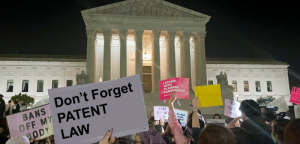by Dennis Crouch
This is the third eligibility post in as many days. In a non-precedential decision issued September 10, 2024, the Federal Circuit affirmed the PTAB's rejection of claims in a patent application directed to eliciting tips for media content -- finding them ineligible. In re McDonald, No. 24-1015 (Fed. Cir. Sept. 10, 2024).
The applicant here is a Utah start-up VidAngel, Inc., that helps folks "Filter out the stuff you don’t want to see or hear in your streaming movies & TV shows, like profanity, nudity, violence & more. But, the invention here has a different focus - it is a setup for eliciting and receiving tips from consumers of media content like streaming movies.
To continue reading, become a Patently-O member. Already a member? Simply log in to access the full post.
